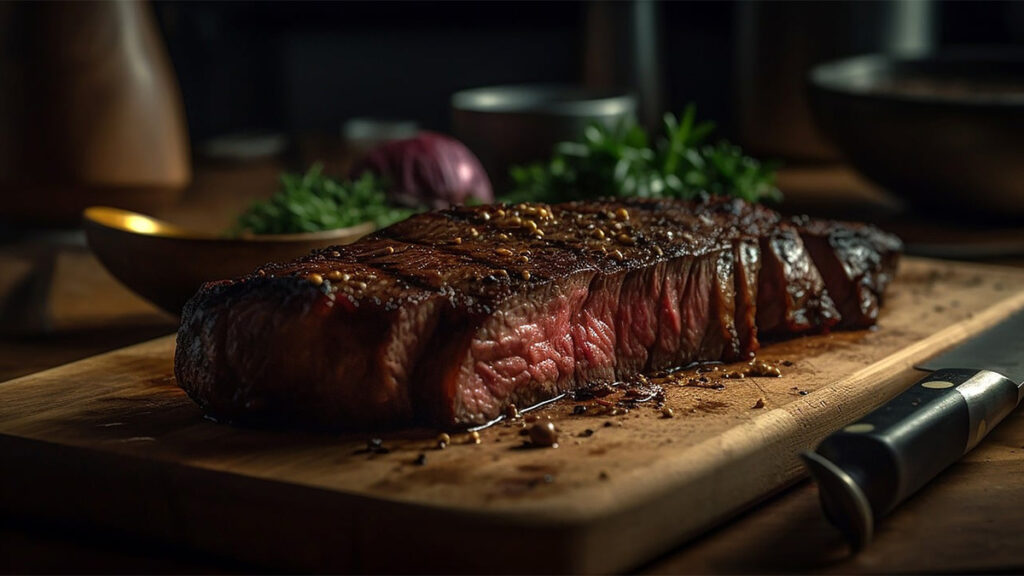Low-carb dieting has grown in popularity since the early 2000s when the Atkins diet first picked up momentum. After decades of being told to avoid fat, the idea that you could eat bacon and still somehow lose weight seemed like the most exciting thing in the world.
Since then its popularity has only grown as the keto and carnivore diets appeared in the mainstream conversation. Now, if you ask the average person what to do to lose weight, the first thing they jump to is cutting down on carbs.
But why are carbs so uniquely bad for fat loss? Why is it the one thing people focus on more than anything else when dieting? Why are they so hard to cut out of your diet? And (most importantly) do you even need to?

The Insulin Concept (And The Problem With It)
The main idea of the low-carb diet generally goes like this
- Eating carbs causes our body to release insulin into the bloodstream
- Insulin signals to our body to store excess blood sugar as fat
- This adds to our fat stores, and rapidly drops our blood sugar, making us feel more hungry and thus eat even more.
I’ll write a detailed article on everything wrong with this idea soon – there’s a lot wrong here. But keeping it short, suffice to say for now:
- Insulin isn’t just triggered by carbs. It’s triggered by protein too. If you’re eating a lot of protein (which you should be), you’ll still be releasing insulin. It’s an inescapable part of how our metabolism works
- Our body will store excess anything as fat. Our body generally doesn’t waste nutrients. Whether it’s avocado or pop tarts, if you eat more than you need, your body will store it as fat for use later.
- Unless you’re diabetic, your blood sugar is tightly regulated by several hormones. People generally experience perceived “blood sugar drops” when they are trying to diet, and eating far too little as a result. It’s not the insulin, it’s the lack of food in general.
The truth is that all weight loss or gain fundamentally comes down to energy balance. If you take in more energy than you need, it can’t magically vanish, so your body stores it for later. On the other hand, if you take in less energy than you need, your body needs to dip into its reserves (ie. fat) to make up for the deficit.
Don’t believe me? No worries, this meta-analysis of 61 studies didn’t find a significant difference in weight loss on low vs more standard carb intake diets. The key factors seem to be overall calorie intake and protein intake.
Here’s a useful video too on the same topic:
So Does This Mean Low-Carb Diets Are Bad?
No, not at all. It just means they aren’t particularly better than diets with carbs. The main thing is to take in the right amount of calories & protein for your goal (feel free to drop me a message and ask if you want to know how to do that).
Whether you go low or high carb has much more to do with one main thing – adherence.
A semi-perfect diet you can stick to is much better than a perfectly optimised one you can’t sustain. So even if low carb vs high carb produced slightly better or worse results, you’re much better off going with the one you can stick to. Personally, I have always preferred high carb, and I generally recommend that for a few reasons
- Most foods (especially easy convenient ones) have carbs in them. If you’ve ever tried to cut out carbs entirely and found yourself out for the day with nothing to eat, you’ll know what I mean
- Most people’s favourite foods involve carbs somehow. I can happily go 8 weeks without bacon, but going without everything from potatoes to rice to bread etc will be hard to keep up
- You perform better with carbs. Our muscles run off a sugar substrate called glycogen that we primarily get from carbohydrates. More carbs = better performance
If you aren’t sure which is better you can always reach out & ask. I spend time with my personal training and nutrition clients to figure this out in detail. But for now here’s a quick and easy way
- For 3 days, keep a simple food diary. Just a text note will do. But write down everything you eat in rough.
- After 3 days, look through. How many things had carbs? What would it look like without them?
- Ask yourself – would my life be easier by reducing the amounts but keeping things the same, or by cutting out all the carbs instead?
There are no wrong answers, but that will give you a good idea of what will suit you best.